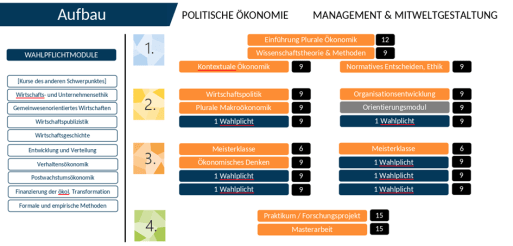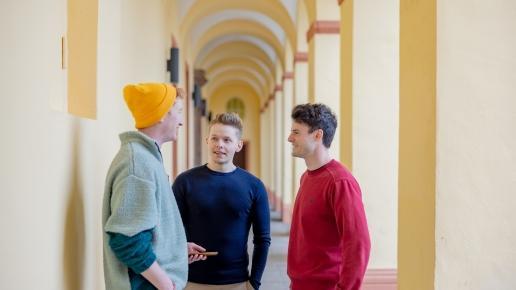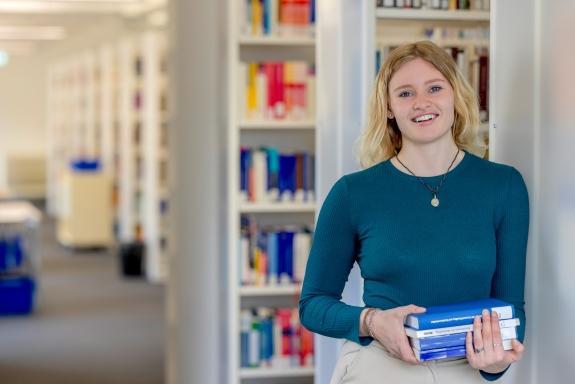Shape your future at the University of Siegen
In the "Plural Economics: Transformation and Sustainability" master's program, you will explore and critically examine a wide range of economic theories—including perspectives that extend beyond conventional approaches. This program is ideal for those interested in addressing pressing issues such as climate change, sustainability, social transformation, digitalization, inequality, and global justice. You can specialize in either Political Economy or Management and Environmental Design. The curriculum encourages analysis and discussion of economic phenomena from diverse perspectives, fostering dialogue among different economic theories. Close collaboration between students and faculty supports the development of the economic skills necessary to actively contribute to shaping social transformation.
Career prospects
Pursuing a Master’s in Plural Economics offers you a wealth of opportunities. This comprehensive and adaptable program features a wide selection of elective courses from diverse academic and professional areas, enabling you to tailor your studies to your interests early on. Our graduates go on to careers in a variety of sectors, including non-governmental organizations, government agencies, social enterprises, labor unions, civil society groups, associations, foundations, academic institutions, economic research organizations, management consulting, and business journalism.
The course "Pluralist Economics: Transformation and Sustainability" always begins in the winter semester. Applicants must possess a Bachelor's degree from a university or university of applied sciences or a comparable degree with a minimum grade of 3.0 (in exceptional cases also 3.5). At least 30 credit points must have been achieved in the field of economics (economics/business administration) during the bachelor's degree course. In addition, proof of English language proficiency of at least level B2 is required (such as by means of a school-leaving certificate). All information on application and enrollment can be found in detail here (https://www.wiwi.uni-siegen.de/wiwi/plurale-oekonomik/bewerbung.html?lang=de).
The current examination regulations always apply.
Structure of the degree program
The program begins with two joint modules. Students then choose between the specializations "Political Economy" and "Management & Environmental Design." Each consists of compulsory modules (orange) and core elective modules (blue, see list on the left), whereby compulsory modules from one specialization can be chosen in the other specialization (ultimately allowing students a wide range of options). An internship or research project and then the master's thesis follow in the final semester. A semester abroad is also possible.

Good reasonss for studying Pluralist Economics at the University of Siegen
- Germany's only degree program offering pluralist economics with a focus on transformation and sustainability from an economic perspective, sited in a faculty of economics
- Explores a range of economic schools of thought beyond the mainstream—including ecological economics, post-Keynesianism, ordoliberalism, behavioral economics, and economic history—and develop your ability to critically analyze and reflect upon their core ideas
- Learning in small groups with close contact between students and lecturers
- Strong ties to teaching staff, with a wide range of opportunities for students to work on jobs and projects in research and teaching
- Learning far beyond abstract models and mathematical formulas


